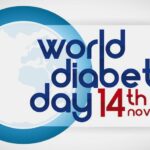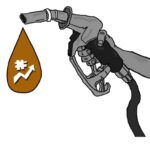A Professor of Nutritional Biochemistry, Omobola Abioye Ogundahunsi says diabetes, cancer and other non – communicable diseases (NCDs) are “increasingly being recognized as major health issues of epidemic proportions in poor- and low- income communities.”
This, Ogundahunsi noted, negated the previous stance when those chronic diseases were mostly associated with affluence.
She spoke while delivering the 93rd inaugural lecture of Olabisi Onabanjo University, (OOU), Ago – Iwoye, Ogun State. The lecture was titled “To Eat, Or Not To Eat? That Is The Question.”
The inaugural lecturer blamed prevalence of the NCDs on microbial and environmental contaminants in food, micronutrients deficient environments, occupational hazards, lack of exercise as well as high fat, high salt and high sugar.
Quoting the World Health Organisation, the university don said about 41million people die of NCDs yearly, representing 71 percent of all death globally.
According to her, as humans we make over 200 health – related decisions every day and these choices influence our well – being and ultimately longetivety.
Ogundahunsi submitted that a nutritiously conscious lifestyle, by making good choices of “what and when to eat in the long term is more effective and sustainable than any crash diet regimen.”
She advocated at least, 30 minutes a day of exercise, 5 times a week, as a critical factor “in reducing the risk of NCDs.”
Ogundahunsi said: “These diseases previously were mostly associated with affluence, but are increasing being recognized as major health issues of epidemic proportions in poor and low – income communities. The worsening epidemic of NCDs calls for increased awareness on prevention and awareness of predisposing factors.
“In Nigeria and many other middle – income countries where NCDs have emerged as a major public health challenges, several additional factors compound the problem. These factors include failure to plan, inadequate planning, lack of policy coherence, inadequate funding, archaic technologies, poor health infrastructure and low remuneration of public health care workers.
“In answering the question whether to eat or not to eat, I want to advise that rather than chop and quench, we should eat to live healthy
 Join Daily Trust WhatsApp Community For Quick Access To News and Happenings Around You.
Join Daily Trust WhatsApp Community For Quick Access To News and Happenings Around You.

